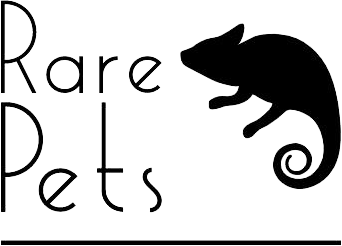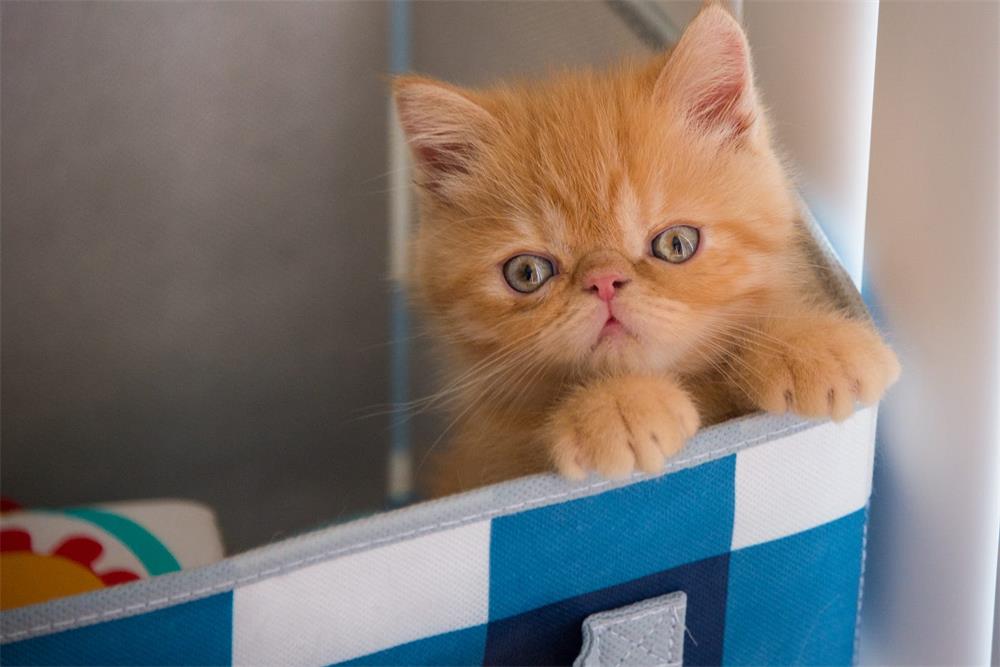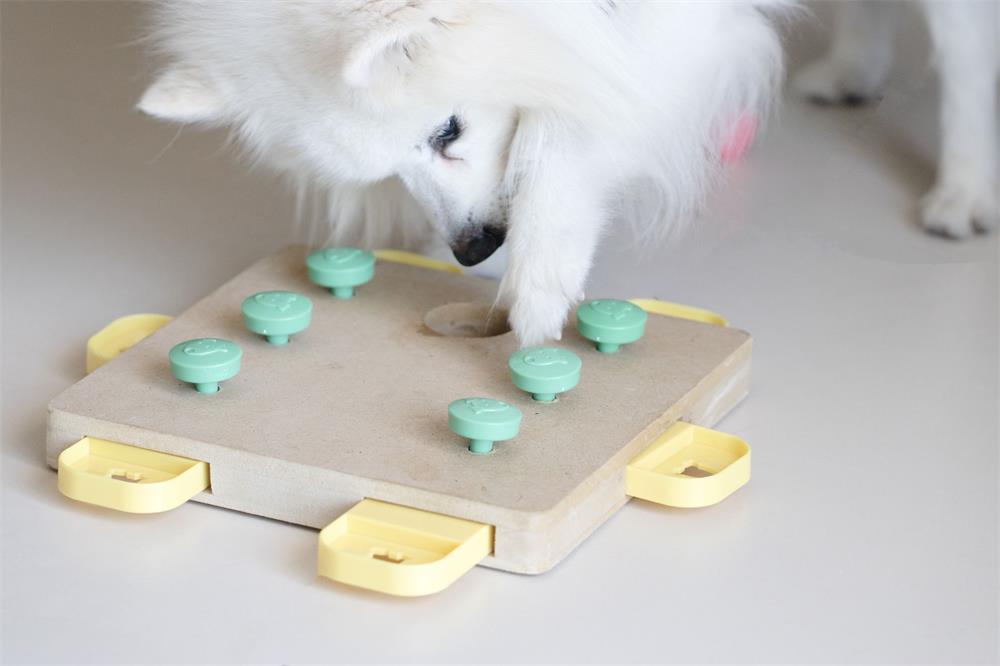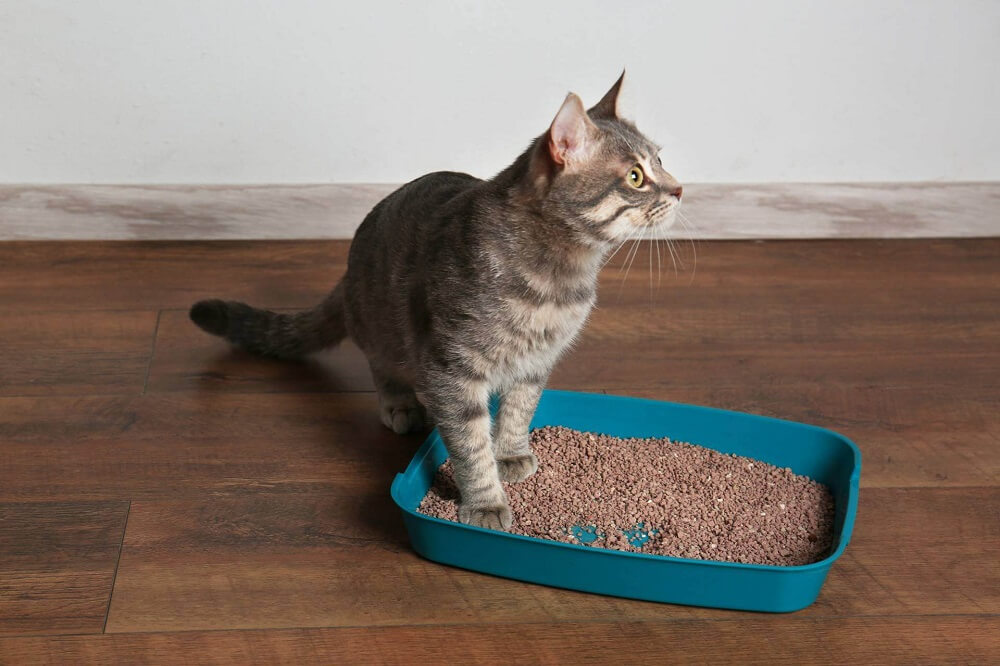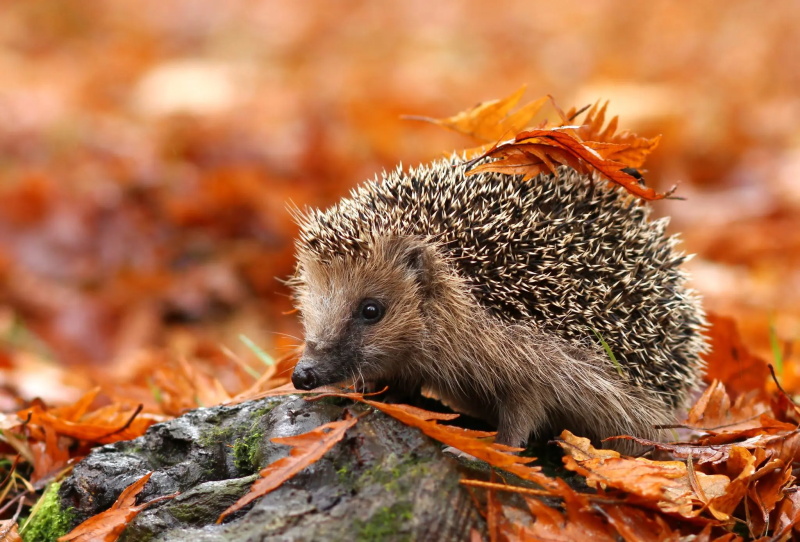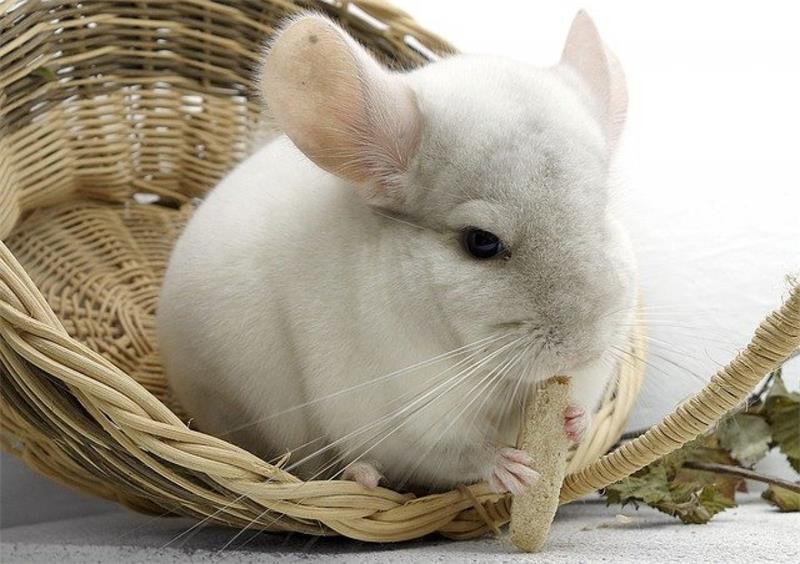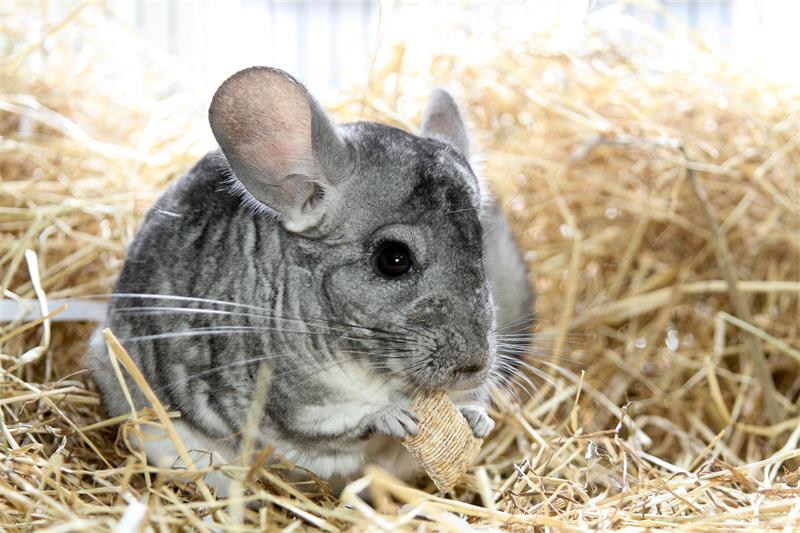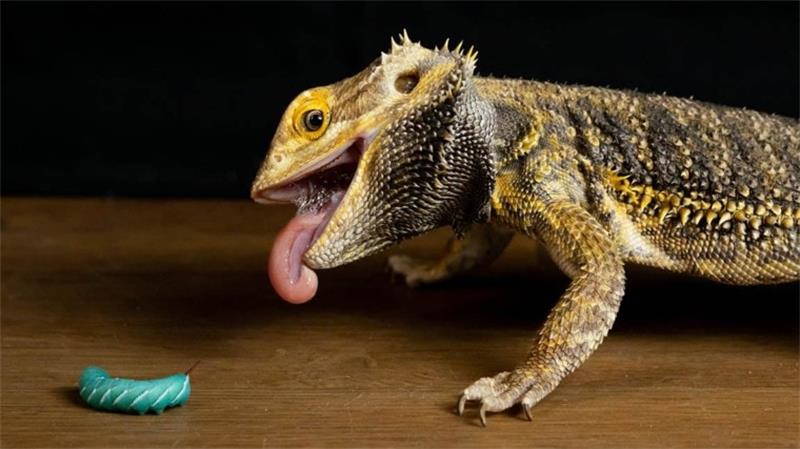
Table of Contents
Bearded dragons are popular and fascinating pets that come from the arid to semi-arid regions of Australia. They are omnivorous, meaning they eat both plant and animal-based foods, including insects. However, not all foods are suitable for bearded dragons, and their dietary needs change as they grow and age. In this article, we will cover everything you need to know about feeding your bearded dragon, from what foods to offer, how often to feed them, and what supplements they need.
The Basics of Bearded Dragon Diet
Bearded dragons are generalists and opportunistic feeders in the wild. They eat a variety of insects, flowers, fruits, and vegetables that they find in their environment. They also have a keen sense of smell and vision that helps them locate food sources.
In captivity, bearded dragons need a balanced diet that mimics their natural diet as much as possible. A balanced diet for bearded dragons consists of:
- 50% plant-based material: This includes leafy greens, vegetables, flowers, and fruits. Plant-based foods provide fiber, vitamins, minerals, and water for your bearded dragon.
- 50% animal-based material: This includes insects and occasionally small rodents or lizards. Animal-based foods provide protein, fat, calcium, and phosphorus for your bearded dragon.
The ratio of plant-based to animal-based foods may vary depending on the age and life stage of your bearded dragon. Younger bearded dragons need more protein and calcium to support their growth and development, so they should eat more insects than plants. Older bearded dragons need less protein and more fiber to maintain their health and prevent obesity, so they should eat more plants than insects.
As a general guideline, you can follow these recommendations:
- Hatchlings (0-2 months): Feed 80% insects and 20% plants daily.
- Juveniles (2-7 months): Feed 60% insects and 40% plants daily.
- Sub-adults (7-18 months): Feed 50% insects and 50% plants daily.
- Adults (18 months and older): Feed 20% insects and 80% plants every other day.
You should always offer fresh water to your bearded dragon in a shallow bowl or by misting the enclosure. Some bearded dragons may not drink from a bowl but will lick water droplets from their surroundings or from their food.
What Insects Can Bearded Dragons Eat?
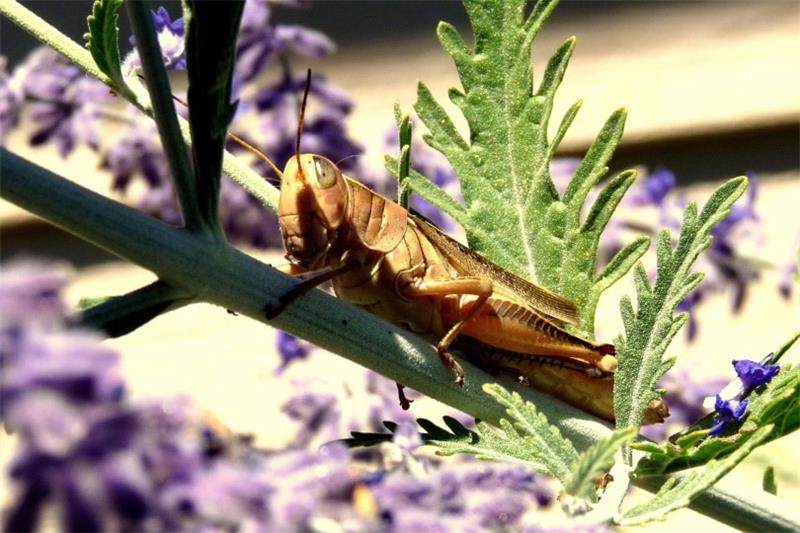
Insects are an essential part of the bearded dragon diet. They provide protein, fat, calcium, phosphorus, and other nutrients that your bearded dragon needs. However, not all insects are suitable for bearded dragons. Some insects may be toxic, indigestible, or too large for your bearded dragon to eat safely.
When choosing insects for your bearded dragon, you should consider these factors:
- Size: The insect should not be larger than the space between your bearded dragon’s eyes. Larger insects may cause choking or impaction in your bearded dragon’s digestive system.
- Nutrition: The insect should have a high calcium-to-phosphorus ratio (at least 1:1) and a low fat content. Insects with a low calcium-to-phosphorus ratio may cause metabolic bone disease in your bearded dragon. Insects with a high fat content may cause obesity or fatty liver disease in your bearded dragon.
- Quality: The insect should be fresh, alive, and healthy. You should avoid feeding your bearded dragon insects that are dead, diseased, or contaminated with pesticides or parasites. You should also avoid feeding your bearded dragon insects that you catch yourself from the wild or from your garden.
Some of the best insects for bearded dragons are:
- Crickets: Crickets are widely available, inexpensive, and nutritious for bearded dragons. They have a high calcium-to-phosphorus ratio (1.6:1) and a low fat content (6%). You can feed your bearded dragon crickets of different sizes depending on their age and appetite.
- Dubia roaches: Dubia roaches are another great option for bearded dragons. They have a high calcium-to-phosphorus ratio (1:1) and a low fat content (7%). They are also easy to breed and maintain at home. You can feed your bearded dragon dubia roaches of different sizes depending on their age and appetite.
- Black soldier fly larvae: Black soldier fly larvae are also known as phoenix worms, calciworms, or nutrigrubs. They are one of the best insects for bearded dragons because they have a very high calcium-to-phosphorus ratio (4:1) and a low fat content (9%). They are also rich in lauric acid, which has antimicrobial properties. You can feed your bearded dragon black soldier fly larvae of different sizes depending on their age and appetite.
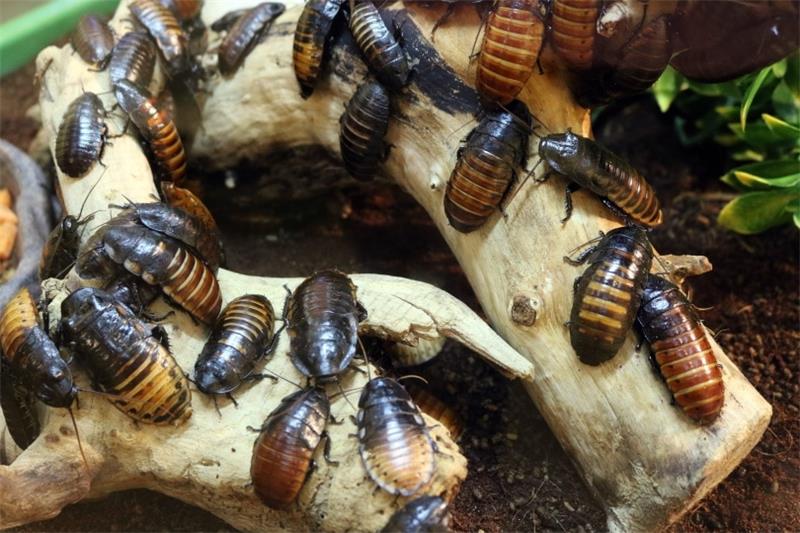
Some other insects that you can feed your bearded dragon occasionally or as treats are:
- Mealworms: Mealworms are easy to find and cheap to buy, but they are not very nutritious for bearded dragons. They have a low calcium-to-phosphorus ratio (0.1:1) and a high fat content (13%). They also have a hard exoskeleton that may be difficult to digest for some bearded dragons. You should only feed your bearded dragon mealworms sparingly and only as treats.
- Superworms: Superworms are similar to mealworms but larger and more active. They have a slightly higher calcium-to-phosphorus ratio (0.2:1) and a lower fat content (11%). They also have a hard exoskeleton that may be difficult to digest for some bearded dragons. You should only feed your bearded dragon superworms sparingly and only as treats.
- Waxworms: Waxworms are soft and juicy insects that bearded dragons love to eat. However, they are very high in fat (25%) and low in calcium-to-phosphorus ratio (0.1:1). They are also very addictive and may cause your bearded dragon to refuse other foods. You should only feed your bearded dragon waxworms sparingly and only as treats.
- Butterworms: Butterworms are another soft and juicy insect that bearded dragons enjoy. They have a moderate calcium-to-phosphorus ratio (0.5:1) and a moderate fat content (12%). They also have a mild laxative effect that may help with constipation. You can feed your bearded dragon butterworms occasionally or as treats.
- Hornworms: Hornworms are large and colorful caterpillars that bearded dragons find irresistible. They have a high water content (85%) and a moderate calcium-to-phosphorus ratio (0.6:1). They also have a moderate fat content (9%). You can feed your bearded dragon hornworms occasionally or as treats.
- Silkworms: Silkworms are small and white caterpillars that are very nutritious for bearded dragons. They have a high calcium-to-phosphorus ratio (1.5:1) and a low fat content (6%). They also have a high protein content (64%) and contain various amino acids and enzymes that benefit your bearded dragon’s health. You can feed your bearded dragon silkworms occasionally or as treats.
You should avoid feeding your bearded dragon these insects:
- Fireflies: Fireflies are toxic to bearded dragons and can cause death within minutes. Never feed your bearded dragon fireflies or any other bioluminescent insects.
- Wild insects: Wild insects may contain pesticides, parasites, or diseases that can harm your bearded dragon. Never feed your bearded dragon insects that you catch yourself from the wild or from your garden.
- Spiders: Spiders may bite or sting your bearded dragon and cause allergic reactions or infections. Never feed your bearded dragon spiders or any other venomous or poisonous insects.
How to Gut Load and Dust Insects
Insects alone are not enough to provide all the nutrients that your bearded dragon needs. You need to gut load and dust them before feeding them to your bearded dragon.
Gut loading means feeding the insects with nutritious foods before feeding them to your bearded dragon. This way, the insects will pass on the nutrients to your bearded dragon when they eat them.
You can gut load your insects with various foods, such as:
- Leafy greens
- Carrots
- Sweet potatoes
- Apples
- Oranges
- Oats
- Alfalfa
- Commercial gut load products
You should gut load your insects for at least 24 hours before feeding them to your bearded dragon.
Dusting means coating the insects with powdered supplements before feeding them to your bearded dragon. This way, the insects will provide extra vitamins and minerals to your bearded dragon when they eat them.
You can dust your insects with various supplements, such as:
- Calcium powder
- Calcium with vitamin D3 powder
- Multivitamin powder
- Commercial dusting products
You should dust your insects every time you feed them to your bearded dragon.
What Plants Can Bearded Dragons Eat?
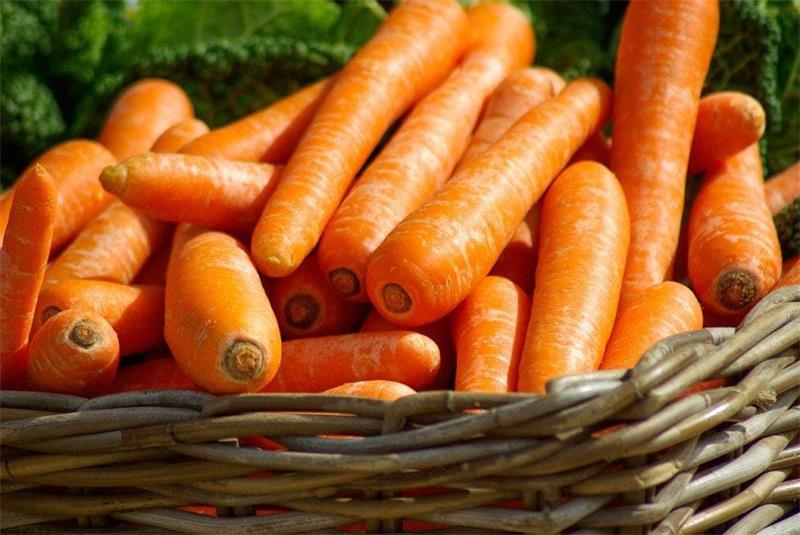
Plants are another essential part of the bearded dragon diet. They provide fiber, vitamins, minerals, and water for your bearded dragon. However, not all plants are suitable for bearded dragons. Some plants may be toxic, indigestible, or too high in oxalates or goitrogens for your bearded dragon to eat safely.
When choosing plants for your bearded dragon, you should consider these factors:
- Nutrition: The plant should have a high calcium-to-phosphorus ratio (at least 1:1) and a low oxalate and goitrogen content. Plants with a low calcium-to-phosphorus ratio may cause metabolic bone disease in your bearded dragon. Plants with a high oxalate content may bind calcium and other trace minerals, preventing their absorption. Plants with a high goitrogen content may suppress thyroid function by interfering with iodine uptake.
- Quality: The plant should be fresh, organic, and washed. You should avoid feeding your bearded dragon plants that are wilted, spoiled, or contaminated with pesticides or parasites. You should also avoid feeding your bearded dragon plants that you pick yourself from the wild or from your garden.
Some of the best plants for bearded dragons are:
- Leafy greens: Leafy greens are the main source of plant-based food for bearded dragons. They provide fiber, vitamins, minerals, and water for your bearded dragon. You should offer a variety of leafy greens to your bearded dragon every day. Some of the best leafy greens for bearded dragons are:
- Collard greens
- Dandelion greens
- Mustard greens
- Turnip greens
- Bok choy
- Escarole
- Endive
- Watercress
- Alfalfa
- Vegetables: Vegetables are another source of plant-based food for bearded dragons. They provide fiber, vitamins, minerals, and water for your bearded dragon. You should offer a variety of vegetables to your bearded dragon every other day. Some of the best vegetables for bearded dragons are:
- Carrots
- Squash
- Zucchini
- Pumpkin
- Bell peppers
- Green beans
- Peas
- Broccoli
- Cauliflower
- Flowers: Flowers are a source of plant-based food and enrichment for bearded dragons. They provide fiber, vitamins, minerals, and water for your bearded dragon. They also add color and variety to your bearded dragon’s diet. You should offer a variety of flowers to your bearded dragon occasionally or as treats. Some of the best flowers for bearded dragons are:
- Hibiscus
- Dandelion
- Rose
- Nasturtium
- Marigold
- Carnation
- Geranium
- Daisy
- Fruits: Fruits are a source of plant-based food and enrichment for bearded dragons. They provide fiber, vitamins, minerals, and water for your bearded dragon. They also add sweetness and variety to your bearded dragon’s diet. You should offer a variety of fruits to your bearded dragon occasionally or as treats. Some of the best fruits for bearded dragons are:
- Apple
- Pear
- Banana (with skin)
- Mango
- Grapes (seedless)
- Melon (seedless)
- Peach (pitted)
- Apricot (pitted)
- Fig
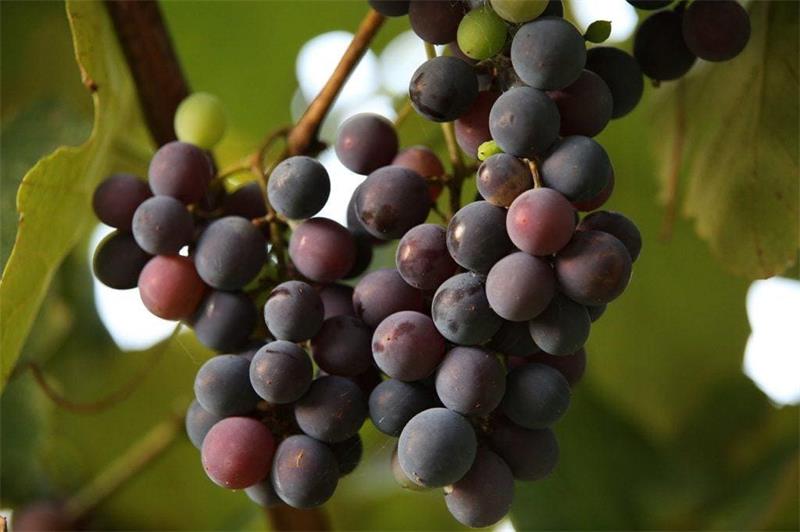
You should avoid feeding your bearded dragon these plants:
- Iceberg lettuce: Iceberg lettuce is low in nutrition and high in water. It can cause diarrhea and dehydration in your bearded dragon.
- Spinach: Spinach is high in oxalates and low in calcium-to-phosphorus ratio. It can cause nutrient deficiencies and kidney problems in your bearded dragon.
- Kale: Kale is high in goitrogens and low in calcium-to-phosphorus ratio. It can cause thyroid problems and metabolic bone disease in your bearded dragon.
- Cabbage: Cabbage is high in goitrogens and low in calcium-to-phosphorus ratio. It can cause thyroid problems and metabolic bone disease in your bearded dragon.
- Beet greens: Beet greens are high in oxalates and low in calcium-to-phosphorus ratio. They can cause nutrient deficiencies and kidney problems in your bearded dragon.
- Citrus fruits: Citrus fruits are high in acidity and low in calcium-to-phosphorus ratio. They can cause stomach upset and metabolic bone disease in your bearded dragon.
- Avocado: Avocado is high in fat and contains a toxin called persin. It can cause obesity and liver damage in your bearded dragon.
- Rhubarb: Rhubarb is high in oxalates and contains a toxin called oxalic acid. It can cause kidney failure and death in your bearded dragon.
- Onion: Onion is high in sulfur and contains a toxin called thiosulphate. It can cause anemia and hemolysis (destruction of red blood cells) in your bearded dragon.
- Garlic: Garlic is high in sulfur and contains a toxin called allicin. It can cause anemia and hemolysis (destruction of red blood cells) in your bearded dragon.
- Chives: Chives are high in sulfur and contain a toxin called allicin. They can cause anemia and hemolysis (destruction of red blood cells) in your bearded dragon.
- Leeks: Leeks are high in sulfur and contain a toxin called allicin. They can cause anemia and hemolysis (destruction of red blood cells) in your bearded dragon.
- Tomato leaves: Tomato leaves are high in oxalates and contain a toxin called solanine. They can cause kidney problems and neurological symptoms in your bearded dragon.
- Potato leaves: Potato leaves are high in oxalates and contain a toxin called solanine. They can cause kidney problems and neurological symptoms in your bearded dragon.
- Eggplant leaves: Eggplant leaves are high in oxalates and contain a toxin called solanine. They can cause kidney problems and neurological symptoms in your bearded dragon.
How to Prepare and Offer Plants
Plants should be prepared and offered to your bearded dragon in a way that maximizes their nutrition, freshness, and appeal. You should follow these steps when preparing and offering plants to your bearded dragon:
- Wash: Wash the plants thoroughly with water to remove any dirt, pesticides, or parasites. You can also use a produce wash or vinegar solution to disinfect the plants.
- Chop: Chop the plants into bite-sized pieces that are easy for your bearded dragon to eat. You can also shred or grate the plants for easier digestion.
- Mix: Mix different types of plants together to create a salad for your bearded dragon. You can also add some fruits or flowers for extra flavor and variety.
- Sprinkle: Sprinkle some calcium or multivitamin powder on the salad to boost the nutrition of the plants. You should do this every time you feed your bearded dragon plants.
- Serve: Serve the salad to your bearded dragon in a shallow bowl or dish that is easy for them to access. You can also scatter some pieces of plants around the enclosure for enrichment and stimulation.
You should always offer fresh plants to your bearded dragon and remove any leftovers after each feeding. You should also rotate different types of plants to provide a diverse and balanced diet for your bearded dragon.
What Supplements Do Bearded Dragons Need?
Bearded dragons need supplements to prevent nutrient deficiencies and health problems. Supplements are usually given in the form of powders that are sprinkled on the food or liquids that are given orally.
The most important supplements for bearded dragons are:
- Calcium: Calcium is essential for bone growth, muscle contraction, nerve function, blood clotting, and egg production. Bearded dragons need calcium to prevent metabolic bone disease, which is a common condition that causes weak bones, deformities, fractures, paralysis, and death. Calcium supplements should be given daily to young bearded dragons and every other day to adult bearded dragons. Calcium supplements should have a calcium-to-phosphorus ratio of at least 2:1.
- Vitamin D3: Vitamin D3 is essential for calcium absorption, bone health, immune system function, and hormone regulation. Bearded dragons need vitamin D3 to prevent metabolic bone disease, rickets, osteomalacia, hypocalcemia, and hypoparathyroidism. Vitamin D3 supplements should be given twice a week to young bearded dragons and once a week to adult bearded dragons. Vitamin D3 supplements should not exceed 10% of the calcium content.
- Multivitamin: Multivitamin is essential for providing various vitamins and minerals that are not adequately supplied by the diet. Bearded dragons need multivitamin to prevent vitamin A deficiency, vitamin B complex deficiency, vitamin E deficiency, vitamin K deficiency, iron deficiency, zinc deficiency, and other nutrient deficiencies. Multivitamin supplements should be given once a week to young bearded dragons and once every two weeks to adult bearded dragons. Multivitamin supplements should not contain vitamin A or D3, as these can cause toxicity if overdosed.
You should always use high-quality supplements that are specifically designed for reptiles. You should also follow the instructions on the label and consult your veterinarian for the correct dosage and frequency for your bearded dragon.
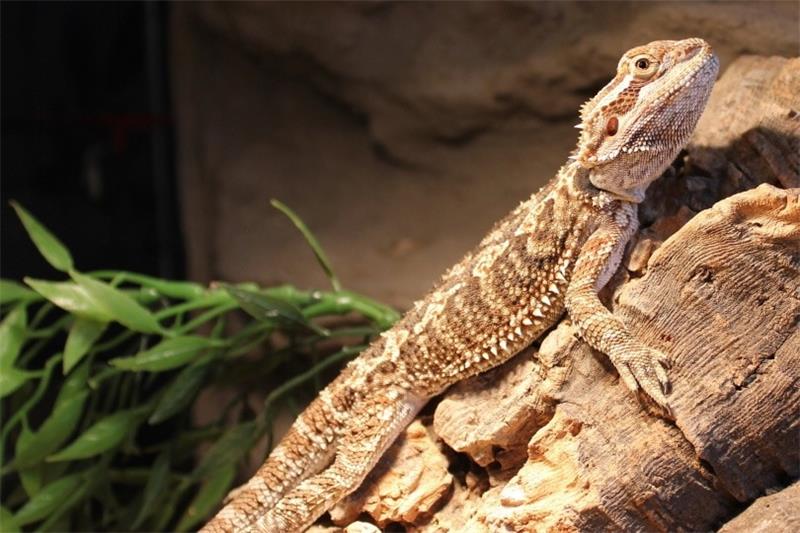
How to Feed Your Bearded Dragon
Feeding your bearded dragon is not only a way to provide nutrition but also a way to bond with your pet and enrich their life. You should feed your bearded dragon in a way that mimics their natural feeding behavior and stimulates their appetite and curiosity.
You can feed your bearded dragon in different ways, such as:
- Hand feeding: Hand feeding is a way to feed your bearded dragon by offering food from your hand or a pair of tweezers. Hand feeding can help you build trust and rapport with your bearded dragon and make them more comfortable with handling. Hand feeding can also help you monitor their food intake and health. You can hand feed your bearded dragon insects or small pieces of plants.
- Bowl feeding: Bowl feeding is a way to feed your bearded dragon by placing food in a shallow bowl or dish in their enclosure. Bowl feeding can help you provide a large amount of food at once and allow your bearded dragon to eat at their own pace. Bowl feeding can also help you keep the enclosure clean and prevent the food from being contaminated by the substrate. You can bowl feed your bearded dragon insects or plants.
- Scatter feeding: Scatter feeding is a way to feed your bearded dragon by scattering food around their enclosure. Scatter feeding can help you stimulate your bearded dragon’s natural foraging behavior and encourage them to explore their environment. Scatter feeding can also help you provide variety and enrichment to your bearded dragon’s diet. You can scatter feed your bearded dragon insects or small pieces of plants.
You should always feed your bearded dragon at the same time every day, preferably in the morning or early afternoon. This will help you establish a routine and match your bearded dragon’s natural activity cycle. You should also feed your bearded dragon after they have basked under the UVB and heat lamps for at least an hour. This will help them digest their food properly and prevent impaction.
You should always observe your bearded dragon while they are eating and make sure they are eating enough and not choking or regurgitating. You should also remove any uneaten food after each feeding and clean the bowl or dish regularly.
Conclusion
Bearded dragons are omnivorous reptiles that need a balanced diet of insects and plants to stay healthy and happy. They also need supplements, water, and proper lighting and heating to aid their digestion and metabolism. Feeding your bearded dragon correctly is one of the most important aspects of caring for them as pets.
